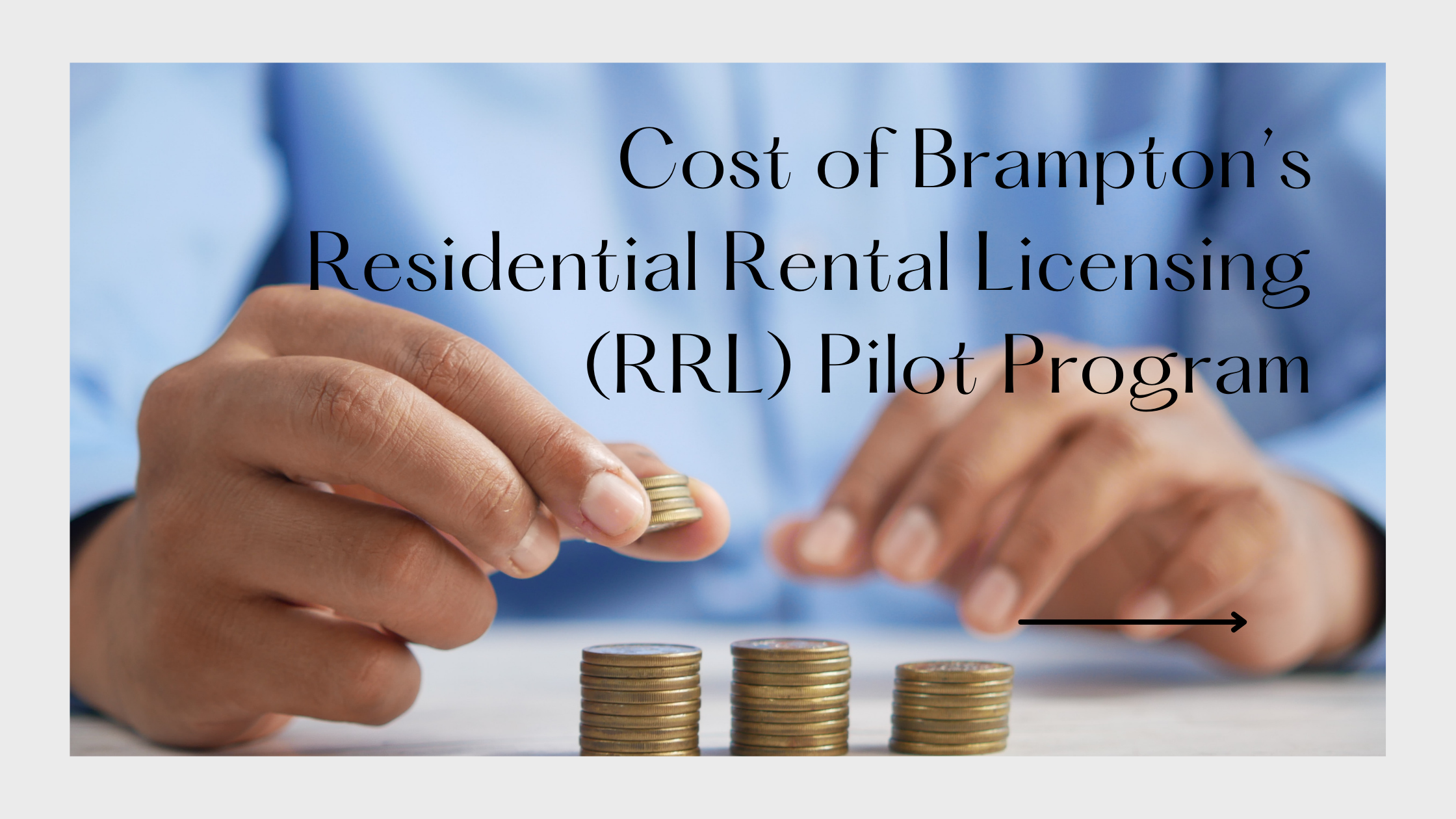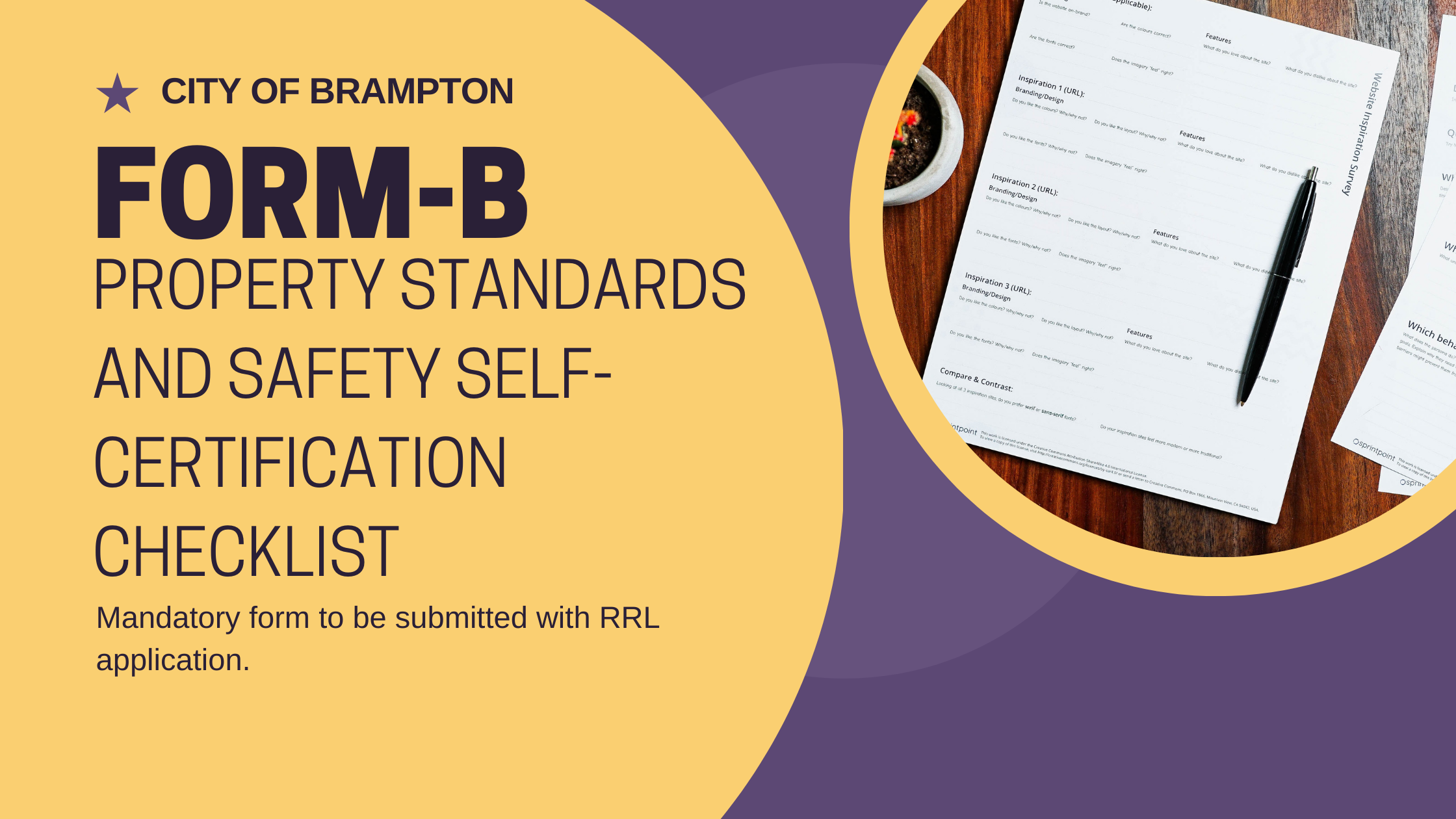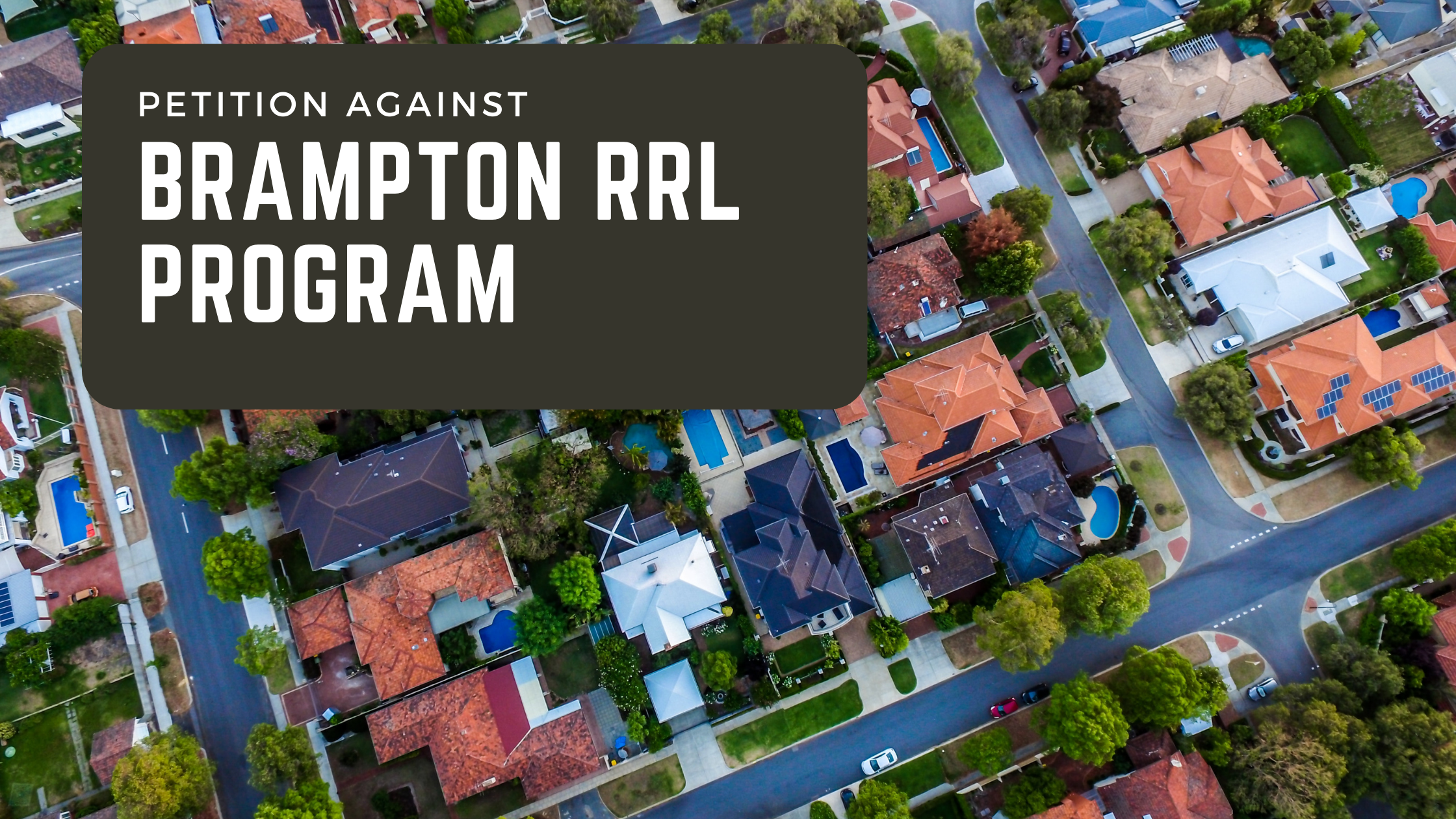Brampton’s Residential Rental Licensing Program has become a focal point of discussion, not only for its impact on housing standards but also for the financial considerations involved. This article aims to break down the costs associated with the program, from the application fees paid by landlords to the city’s annual expenses, and shed light on the fines imposed for violations.
Application Costs for Landlords: $300 per property per year:
- One of the primary costs for landlords participating in the Residential Rental Licensing Program is the application fee. At $300 per property, this annual expense is incurred by property owners to obtain the necessary license for each rental unit they manage. This fee contributes to the city’s efforts to regulate and improve rental housing conditions.
City Expenditure: $1,375,000 for the 2 years duration of the pilot program:
- On the other side of the equation is the financial commitment from the City of Brampton. The Residential Rental Licensing Program comes with price tag of $1,375,000 for the city to administer and enforce the program. This budget covers various expenses, including staffing, inspections, paperwork processing, communications and other operational costs.
Financial Projections by City of Brampton
| Y2024 | Y2025 | Total | |
|---|---|---|---|
| Total Cost | $625,000 | $750,000 | $1,375,000 |
| Estimated Revenue | $225,000 | $225,000 | $450,000 |
| Net Cost | $400,000 | $525,000 | $925,000 |
Fines for Violations: Financial Consequences for Landlords:
- In addition to the upfront application fee, landlords must also be aware of potential fines for violations of the program’s standards. These fines serve as a deterrent against non-compliance and aim to ensure that landlords promptly address and rectify any issues identified during inspections.
- Fines may vary depending on the nature and severity of the violation. Common violations include failure to meet safety standards, inadequate maintenance, or non-compliance with the program’s regulations. The fines are designed to encourage landlords to proactively maintain their properties in accordance with the established standards.
Balancing Act: Economic Implications and Program Objectives:
- The economic aspects of the Residential Rental Licensing Program highlight a delicate balancing act. On one hand, landlords are facing increased costs through application fees and potential fines, while on the other, the city is allocating a substantial budget to administer the program and improve housing standards.
- Advocators argue that the costs incurred by landlords contribute to the collective well-being of the community by ensuring safe and habitable living conditions. The fines act as a mechanism to enforce compliance, fostering a culture of responsible property management.
Brampton’s Residential Rental Licensing Program introduces a financial dynamic that involves landlords, the city, and the broader community. While the costs may be perceived as a burden by some property owners, they are integral to the program’s objective of enhancing rental housing standards. The challenge lies in striking a balance that ensures fair treatment for landlords while safeguarding the well-being of tenants and fostering a higher quality of living across the city. As the program evolves, ongoing assessment and communication between stakeholders will be essential to refine the economic framework and achieve the intended outcomes for all parties involved.




